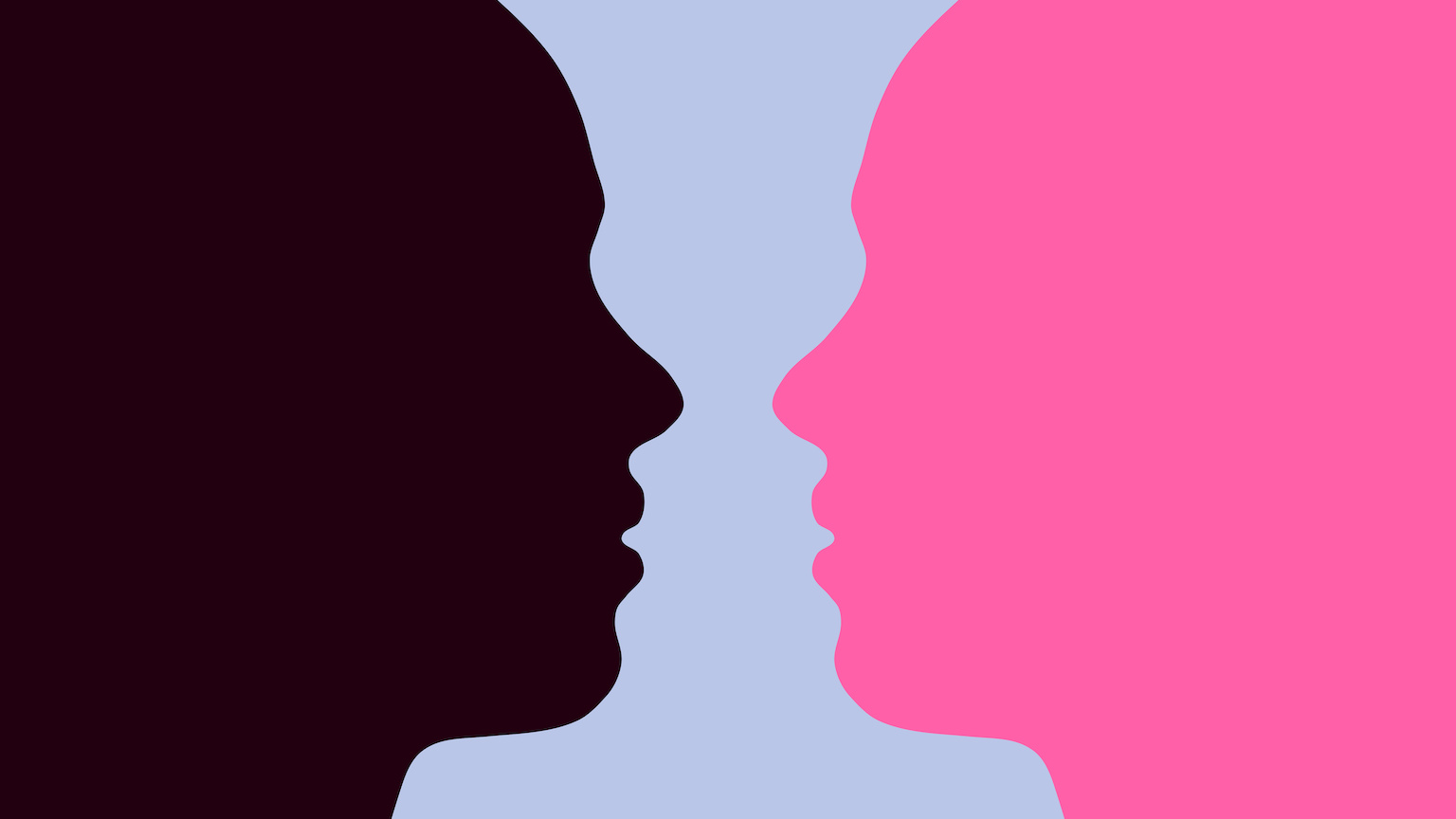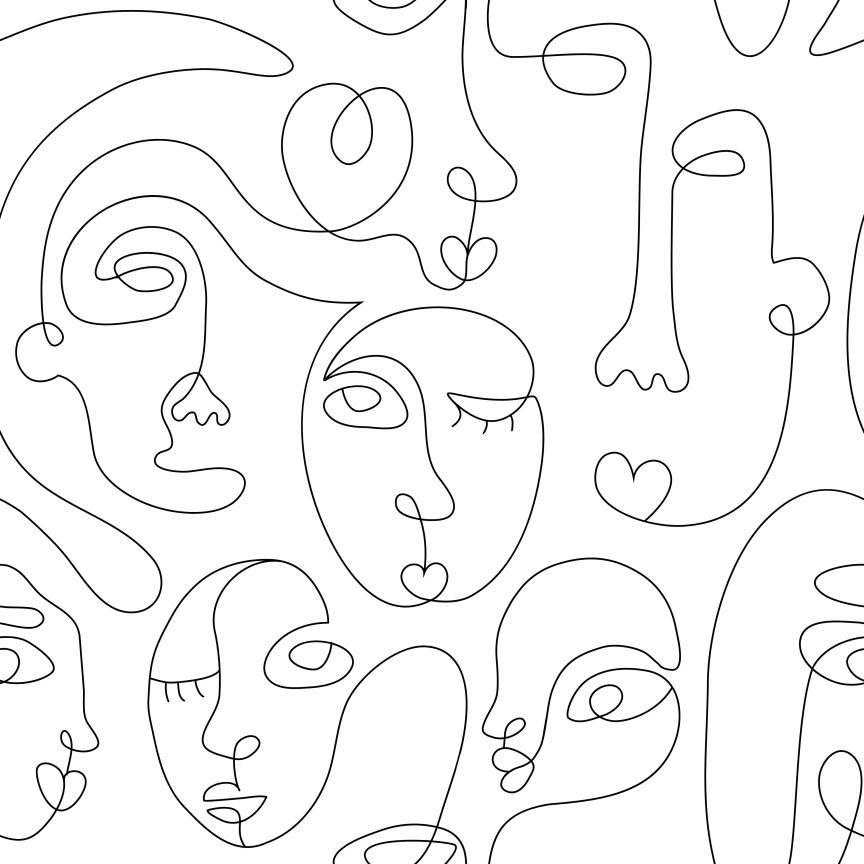You are probably a naive realist. Try not to be

- People interpret the world subjectively through their own psychological context, which is influenced by our biases.
- Two biases in particular — self-serving bias and the fundamental attribution error — serve as main ingredients for naive realism.
- One consequence of naive realism is making less favorable attributions about others’ decisions when they differ from our own.
The optical illusion above is the Rubin vase — or is it two faces? This is a commonly used example of our tendency to see patterns in order to make sense of the world around us (a cornerstone of gestalt psychology). A more recent example of such an illusion concerned the color of a dress. Was it blue and black or white and gold? Irrespective of who was right and who was wrong (the dress was actually blue and black), two phenomena were fully on display: (1) People’s perception of the world around them is highly subjective, but (2) they tend to behave as if those subjective perceptions are objectively correct. These two elements compose naive realism.
Our perception of the world is subjective
Humans don’t view the world as it objectively exists. We take various pieces of information and interpret them in a way that makes sense to us. But individual differences — the values, emotions, personality traits, and even prior experiences we bring to any situation — influence our interpretations of the world. That means our interpretations are highly subjective, and they form the cornerstone of the psychological context in which we make decisions and act on them.
That’s why not everybody will look at the same comedian and reach the same conclusions about how funny that comedian is. Likewise, not everyone will make the same assessment of whether the latest iPhone is worth the cost. In both instances, the psychological context people bring with them influences the resulting conclusions they reach.
Bias, for better or worse
Similarly, our biases — the slant, tendencies, or predilections we bring to any situation — also influence the psychological context within which we make decisions. Someone who is a devout Android user is extremely unlikely to conclude that the new iPhone is worth the cost, but someone who is passionate about Apple products is likely to have the opposite predilection. As such, both individuals may look at the exact same information about the latest iPhone and reach opposite conclusions.
Biases end up serving as a de facto default response. The stronger the bias, the more evidence or situational pressure we would need to override that default. The aforementioned devout Android user would require much stronger evidence to conclude that the latest iPhone is a worthwhile purchase.
Biases do not necessarily lead to bad decisions because they help us make those decisions in accordance with our values and motivations. If we respect prior possession, then we will be biased against stealing from others — which is a good thing. Thus, our default is to respect others’ property, unless our motivation is strong enough to override that default.
When bias goes bad
A self-serving bias occurs when we interpret the world in a way that is beneficial to our sense of self. This is not necessarily a bad thing, but it often is. For example, the tendency to attribute successes to our diligence and hard work and failures to external causes is one manifestation of this bias. Another manifestation is the tendency to justify our own bad behavior based on external pressures. (It’s not my fault because…)
When it comes to others, though, our attributions tend to be less benign, mostly because we have far less insight into the causes of others’ behaviors. As a result, our default often is to attribute another person’s behavior to internal characteristics of that person (for example, one’s personality), especially regarding attributions about bad behavior. Known as the fundamental attribution error, it manifests when we believe that the person who cut us off in traffic isn’t just having a bad day but is a fundamentally rotten person.
Coupled with self-serving bias, the fundamental attribution error can cause relationship problems. For example, if we are biased to reach conclusions that allow us to maintain our sense of self, then it makes sense that, when we have a conflict with someone else, we are also biased to conclude that the conflict was caused by the other person — probably because they’re rotten.
The ingredients for naive realism
Taken together, we now have all the ingredients for naive realism. This is the tendency to believe that we are rational and our decisions are objectively correct.
Because our own perceived rationality is the reference point, that leaves us with very few options for the attributions we make about others’ decisions. And because we tend to default to simpler, more personality-related reasons for others’ decisions, there is an increased likelihood that we will attribute perceived differences to deficiencies in others’ competency — namely, that they’re biased, irrational, or stupid.
Of course, because most of us are naïve realists, they probably think the same thing about you. So, let’s try not to be naive realists.





